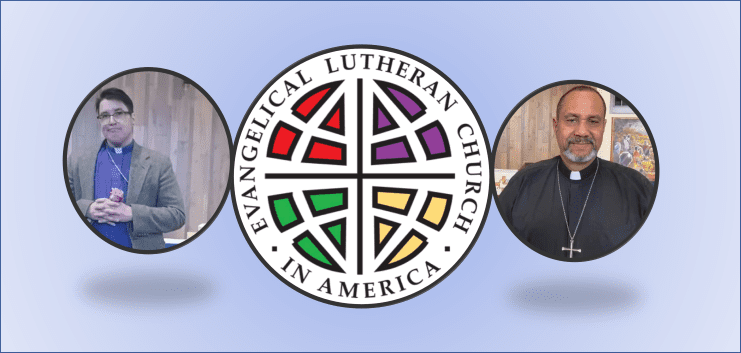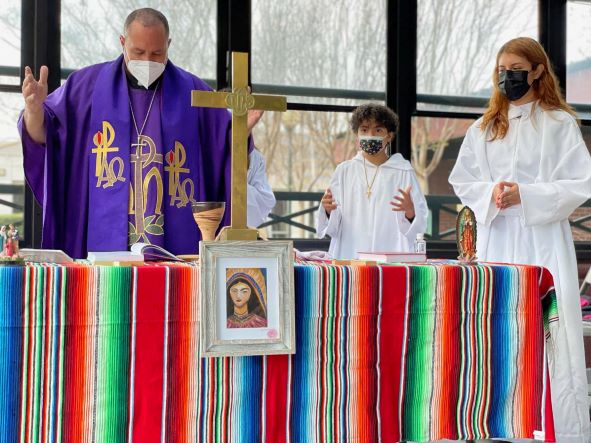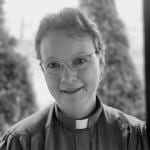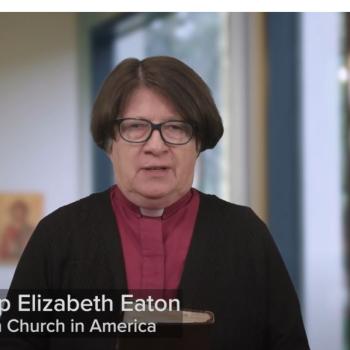ELCA Presiding Bishop is convening a “listening panel” to review the interactions of Bishop Megan Rohrer of the Sierra Pacific Synod with Misión Latina Luterana. But this action reveals a double and even triple standard in the application of due process in the ELCA.

On March 8, 2022, ELCA Presiding Bishop Elizabeth Eaton issued a statement entitled, “Listening Panel regarding Bishop Megan Rohrer.” The statement announced that she is “appointing a listening panel of three people to review the interactions of Bishop Megan Rohrer with Misión Latina Luterana, particularly on December 12, the Feast Day of Our Lady of Guadalupe” and to make recommendations to her.
Bishop Eaton clarified that “The panel will not revisit the decisions of the Sierra Pacific Synod regarding former pastor Nelson Rabell-González.” Further, she explained that the process “will be similar to the process that was used in the South-Central Synod of Wisconsin in 2019.” She also added that “Bishop Rohrer has been invited to suggest one of the three members of the panel, which will reflect the diversity of our church.”
There’s a lot to unpack in Bishop Eaton’s statement, so let’s examine this point by point.
[Full disclosure: Rev. Rabell-González and I have been friends and clergy colleagues for twenty years. We both love the Lutheran church. But we have been frustrated and appalled at the way the ELCA’s institutional structure, governance, and policies have been used to enable, cover up, and perpetrate systemic racism against clergy and congregations from racially and ethnically minoritized communities. I have been accompanying him in this saga for more than a year and have written a series of posts about the situation which can be accessed at the end of this piece.]
First, what were the “interactions of Bishop Megan Rohrer with Misión Latina Luterana on December 12, the Feast Day of Our Lady of Guadalupe”?
That was the day when Bishop Rohrer came with two members of their staff to take over the worship service of this Latiné congregation and announce that Rev. Nelson Rabell-González was no longer their pastor. (You can read about the events of that day here.) To put it succinctly, Bishop Rohrer violated one of the most sacred days in the Hispanic faith community and disappeared their pastor without explanation.
In their explanatory statement, Rohrer insisted that care was provided to the community.
However, one of the members of their staff who was present that day and charged with leading the service tells a very different story.
The Rev. Hazel Salazar-Davidson, Assistant to the Bishop for Authentic Diversity, Inclusive Community and Service, sent a 26-page letter to the Conference of Bishops earlier this month. (That letter was made public in a statement by Bishop Leila M. Ortiz, Metro Washington D.C. Synod, last week.) The letter details Rev. Salazar-Davidson’s experience in the lead-up to Dec. 12, the trauma she endured that day, and the fact that she has been denied compensation while on leave to recover from the experience. Her words specifically refute the claim of the synod council and Bishop Rohrer that care was provided to the congregation. “I wasn’t allowed to give the community any comfort or any kind of care,” she said.
Silenced and ignored
According to Rev. Salazar-Davidson, Bishop Rohrer had announced to their staff as early as Nov. 30th, 2021, that they had decided to remove Rev. Rabell-González on December 12. Note, this contradicts the Synod statement that it was the Synod Council who made the decision. As this presentation by CeCee Mills asks, who actually decided to remove Rabell-González and when was it decided? These inconsistencies raise concerns about what is actually the truth.
According to Rev. Salazar-Davidson, she spoke out against the idea of removing Rev. Rabell-González on Dec. 12. From her letter: “I informed the Bishop and the staff that taking these actions on this particular day resembled actions taken by colonizers when they would storm indigenous villages in the middle of their sacred festivals and kill them.” Apparently, this did not matter to Rohrer who, according to Rev. Salazar-Davidson, insisted that they were “not looking for conversation” about the decision, but only to inform the staff that the decision had been made.
Rev. Salazar-Davidson’s letter includes a verbatim of the events of Dec. 12 which reveals several disturbing behaviors and actions by Bishop Rohrer as well as a description of the congregation’s reaction. While the video of the events of that day hardly shows a “riot” (as Rev. Salazar-Davidson characterized it), the community certainly refused to sit quietly and accept the decision handed down to them. (You can watch the video here. Minute mark 32:50 is when the protest begins.) They picked up the flowers, the cross, the statue of the Virgin of Guadalupe, and left the sanctuary in protest.
Emerging free and stronger
Incidentally, the congregation has since reemerged like a phoenix from the ashes of that day with a new name, Iglesia Luterana Santa María Peregrina (Saint Mary the Pilgrim Lutheran Church), and a new location, First Congregational Church (UCC) in Stockton. This is the first independent Latiné Lutheran Church in the area. What they have retained is their dignity, their dedication to the gospel and serving their community, and their pastoral leadership. Rev. Rabell-González, unceremoniously removed from the ELCA roster on Feb. 7, is now free to serve the Hispanic community he was called to minister to in the first place.

Which brings up another interesting detail. The congregation that originally called him to start a Spanish ministry – St. Paul Lutheran in Lodi, Calif. – no longer has any evidence of this ministry on their website or Facebook page. Recall that this was the congregation that had forced Rev. Rabell-González to resign in Feb. 2021 and wanted him to sign a non-disclosure agreement. They also immediately replaced him with the former intern, Rev. Frances Le Bas. This is the same intern who accused him of misconduct just prior to the 2021 synod assembly when he was a candidate for bishop. (To read the full timeline of the events click here.)
Curiouser and curiouser
But Rev. Le Bas is no longer on staff at St. Paul, and the Hispanic ministry seems to have disappeared. Curious. If St. Paul and Rev. Mark Price were truly committed to ministry in the Latiné community, why would they just erase it? Having the Spanish ministry certainly looked good for Rev. Price when he himself was a candidate for bishop. Perhaps everything that has happened since then has made it too painful for the congregation. Or, perhaps the Hispanic community is no longer of use to him.
In any case, let’s return to Bishop Eaton’s statement about the “listening panel” for Bishop Rohrer.
It is negligent for Eaton to instruct the panel not to investigate how the Sierra Pacific Synod (mis)handled the case of Rev. Nelson Rabell-González.
From the beginning of this ordeal, Rev. Rabell-González has repeatedly asked to be subject to the disciplinary process of the ELCA so that evidence could be brought forward. And, repeatedly, both the synod and the churchwide office have denied him due process.
Why? What is the reason for subverting the ELCA’s constitutional process? In the absence of any explanation, we are left to surmise that there may, in fact, be other issues in play that they are hoping we will simply forget and move on. But we have not forgotten. And we are not moving on until due process and justice are carried out.
Which brings us to the next point in Eaton’s statement.
What was “the process that was used in the South-Central Synod of Wisconsin in 2019”?
This vaguely worded sentence refers to the forced resignation of Bishop Viviane Thomas-Breitfeld, the second African American woman elected as bishop in the ELCA. Barely a year into her term, Thomas-Breitfeld resigned due to concerns raised by the Executive Committee of the South-Central Wisconsin synod council.* There are many questions surrounding Thomas-Breitfeld’s case, not the least of which is the fact that she was required to sign an NDA to guarantee her silence. Many of her supporters have insisted that she, too, was denied due process. And let’s not miss the fact that Eaton could not even bring herself to #SayHerName in this statement. Her name is Former Bishop Viviane Thomas-Breitfeld, for the record.
Double standard
Finally, Eaton stated that “Bishop Rohrer has been invited to suggest one of the three members of the panel, which will reflect the diversity of our church.” How interesting. How very fair and generous. How nice it would have been if Rev. Rabell-González had received the same fairness and generosity.
Which leads me to wonder. Are there double standards in the ELCA for applying the disciplinary process to its ordained ministers? Why is Rohrer afforded a “listening panel” instead of being subjected to the disciplinary procedures of the ELCA Constitution? Why wasn’t Rev. Rabell-González given the opportunity to have a three-person panel and to suggest one of the members? What is the reason for these two very different ways of handling the issues of ordained ministers in the ELCA? Are there two classes of clergy in this denomination?
Triple standard
In fact, the ELCA seems to have not just a double standard, but a triple standard as well when it comes to the special classification of “mission developers,” as was the case with Rev. Rabell-González. Often appointed to marginalized communities with limited resources, mission developers are ordained ministers who serve at the pleasure of the synod in which they are located. And, apparently, they are subject to a different set of rules and standards than their peers in established (white) congregations. Be assured that Rev. Rabell-González’s case is neither the first nor only situation where a mission church has been shut down without any input from the congregation.
In short, the ELCA is following a colonialist model for its mission congregations and its clergy of racially and ethnically minoritized communities.
When these clergy and congregations “behave,” they can be trotted out as evidence of the denomination’s efforts toward diversity. They are patted on the head and treated as celebrities. Or clergy of color are called as pastors in white congregations as diversity window dressing. Or as a sign of “wokeness” without truly doing the deep, painful work of dismantling structural whiteness.
But things change if these pastors and congregations “misbehave” by speaking too loudly or forcefully about the racism they witness. Or if they underperform. Or overreact. When this happens, the chain is yanked, the funding is cut off, the accusations fly, the office is vacated, and sometimes the ordination is revoked. When the white folks decide they’ve had enough, there is no problem drumming up enough complainers to join in the spiritual and ecclesial lynch mob.
I know, these are strong words.
But over the last few months, I’ve been listening to other clergy colleagues from racially and ethnically minoritized communities who have shared their stories and experiences with me after hearing about what has happened to Rev. Rabell-González. While the details are different, the patterns are the same. This kind of treatment is what they have experienced and witnessed repeatedly. And this is why they are disillusioned, disgusted, and disheartened by the ELCA as a whole.
This is also why we are seeing the hashtag #DoBetterELCA. And why a new Facebook group has formed called Reformation2022. Little by little, more and more people in this denomination are realizing that the structures of the ELCA are fundamentally flawed at the most foundational levels. Serious change — reformation — is needed, and it’s needed now.
Breaking the bishops’ code of silence
Fortunately, some bishops have issued public statements about the situation with Bishop Rohrer and the Sierra Pacific Synod. Delaware-Maryland Synod Bishop Bill Gohl’s statement is here. Texas-Louisiana Gulf Coast Synod Bishop Rinehart’s blog post is here. Metro Washington D.C. Synod Bishop Leila M. Ortiz’s statement is here.
If you’re in the ELCA, I encourage you to talk with your bishop and ask them to release their own statement about the situation in the Sierra Pacific Synod, if they haven’t yet done so. Why? Because this isn’t just about that one synod. This is a systemic issue that requires restructuring at every level of the ELCA.
Anything less will only result in continued injustice, suffering, and rupturing the Body of Christ.
* Note: An earlier version of this article erroneously stated that Bishop Eaton asked for Bishop Thomas-Breitfeld’s resignation. This incorrect statement was based on false information disseminated by the South-Central Wisconsin synod council that has not yet been retracted nor corrected. Bishop Thomas-Breitfeld chose to resign; she was not asked by Bishop Eaton to do so.
The Saga of Rev. Nelson Rabell González
Part One: The Removal of Rev. Rabell-González: A Case Study in ELCA Corruption and Racism
Part Two: ELCA Fires Whistleblower, Rev. Nelson Rabell-González
Part Three: The Day an ELCA Synod ‘Disappeared’ Pastor Nelson Rabell-González
Part Four: The NDA, the Church, and the Attempt to Silence Rev. Nelson Rabell-González
Part Five: Why the ELCA Needs to Investigate the Case of Rev. Nelson Rabell-González
Part Six: Pastor Nelson’s Wife Speaks: The Year of Pain
Part Seven: Rev. Nelson Removed from ELCA Rostered Ministry. Now What?
Part Eight: 6 Reasons Why Rev. Nelson Rabell-González was Denied Due Process
Part Nine: Sierra Pacific Synod Attacks Rev. Nelson – and Indicts Itself
Part Ten: Accusations and Racist False Flags: Rev. Nelson’s Saga is not Unique
For a complete compilation of all documents, blogs, commentaries, and posts from all parties about the situation in the Sierra Pacific Synod, visit this website created by Shruti Kulkarni: https://whathappenedinthesps.weebly.com/. This website compiles communications relating to the controversy for accountability, clarification, and ease of access.
If you would like to stand with Rev. Nelson Rabell-González, we invite you to contribute to his Legal Defense / Life Expense Fund.
Click here: https://fundly.com/nelsonsbills
Your contribution will go towards the legal costs that will enable the truth to come out and due process to proceed. Our goal is for the ELCA to fully investigate Rev. Nelson’s case and to restore him to the roster of Word and Sacrament Ministry.
OTHER WAYS TO GIVE:
Venmo: @Nelson-Rabell
PayPal: @NelsonRabell
CashApp: $NelsonRabell
WANT TO MAIL A CHECK?
Make checks out to “Our Saviour’s Lutheran Church – Fresno” with “Rabell” in the subject line and mail them to: 2101 N Fruit Ave, Fresno, CA 93705
Thank you for standing in solidarity with Rev. Nelson Rabell-González and his family, the congregation of Iglesia Luterana Santa María Peregrina, and the Latiné/Hispanic community.

The Rev. Dr. Leah D. Schade is ordained in the ELCA. She does not speak for the ELCA; her opinions are her own. She is the author of Preaching in the Purple Zone: Ministry in the Red-Blue Divide (Rowman & Littlefield, 2019) and Creation-Crisis Preaching: Ecology, Theology, and the Pulpit (Chalice Press, 2015). She is the co-editor of Rooted and Rising: Voices of Courage in a Time of Climate Crisis (Rowman & Littlefield, 2019). Her latest book, co-written with Jerry Sumney is Apocalypse When?: A Guide to Interpreting and Preaching Apocalyptic Texts (Wipf & Stock, 2020).
Twitter: @LeahSchade
Facebook: https://www.facebook.com/LeahDSchade/













